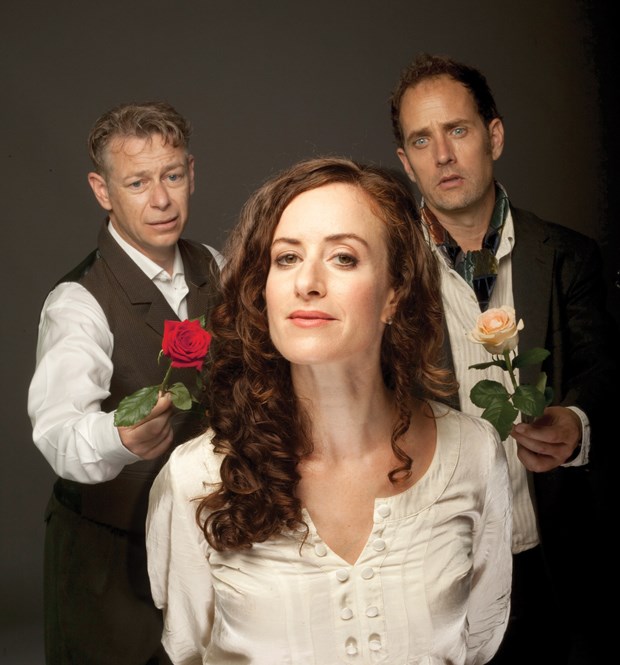In the history of theatre, there is perhaps no bigger loser than Ivan Petrovitch Voynitsky, better known as Uncle Vanya.
He is Willy Loman without the grin. Eeyore without the optimism.
Vanya is beaten, bitter and bad with a gun, but he is also intriguing and relatable, even after the passage of more than a century.
"It's a character that I've known about for a long time and related to a lot of his frustrations," notes actor Anthony F. Ingram as he prepares to portray Anton Chekhov's evertoiling failed Dostoyevsky at The Cultch this December.
Both character and actor are 47, but the parallels run even deeper, Ingram says.
"There's a couple of scenes in the play that are almost taken out of my life and it's sort of fun to re-live them in a much safer way," he says.
Asked if he's referring to the part where Vanya lets loose with a revolver, Ingram laughs.
"Well, almost," he replies. "Just before I shoot him."
Uncle Vanya was penned about 20 years before the 1917 uprisings, and the impact of nobility and class is felt in the play.
One of the many banes of Vanya's existence is the retired university professor Vladimirovich Serebryakov; a blowhard who exploits his brother-in-law and foments the loathing in his soul.
Part of that loathing comes from the professor being enshrined as an aristocrat following the Czar's creation of a system where nobility could be earned, Ingram explains.
The rest of the bile Vanya brews for the professor is the result of his spurned love, blunted ambitions and bleak future.
"You have wrecked my life. I have never lived. My best years have gone for nothing, have been ruined, thanks to you. You are my most bitter enemy!" Vanya proclaims in one of the play's many stirring speeches.
Going through rehearsals has been eye-opening in terms of the play's depth, according to Ingram.
Uncle Vanya includes a reference to a painter known for seascapes of storms and shipwrecks.
"Our first reaction was, 'Well it has nothing to do with what's going on here,' but in fact it does, because the whole thing is a shipwreck," Ingram says.
In a moment that seems brutal and callous even in a Russian play, Astrov, a country doctor, tells Vanya: "When the impulse came to shoot, it would have been as well had you put a bullet through your own head."
The line is indicative of Vanya's unrelenting torment.
"I hadn't realized how bitter he actually was. I knew he was in a depressive state but the more we've worked on it I realized 'Oh man, he's really in pain.' And that eruption that happens in the third act has just been boiling and boiling and boiling for years and years and years. That was a revelation to me of how deep his pain is."
While it seems incongruous, the play's pain is often relieved by laughter, according to Ingram.
"I knew the play was funny," he says. "It's a lot funnier than I imagined - You think of Chekhov as very staid and very formal in a way, but the characters are just vibrating."
The pulse of the characters is attributable to Chekhov, Ingram says.
"What I find fascinating is that being a country doctor he met all these people and basically put them in his plays and stories. They become extremely real once you inhabit them."
A graduate of Studio 58 at Langara College, Ingram has been working fairly steadily since the late 1990s.
“I have a wife who has a normal sort of job, so in the lean times I have to lean on her, but I do contribute and I’ve managed to make it pretty well. The last few years actually have been pretty solid work, doing at least four shows a year,” he says.
As an actor and director, Ingram has taken tours of many lives, including a particularly grueling experience playing a serial killer pedophile.
“That was just an incredible opportunity to get inside that understanding. It was awful, it’s an awful place to be but at the same it’s an opportunity to learn about humanity,” he says. “I see it as a chance to learn about how other people live and survive life.”
One of Uncle Vanya’s more enigmatic characters is Astrov, who Ingram calls a “proto-environmentalist.”
In honour of Astrov’s speech opposing deforestation, Blackbird Theatre has pledged to plant one tree for every ticket sold.



